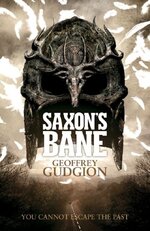Richard Sutton
Flash Club Supremo
I just posted a new interview with author Geoffrey Gudgion on my site. He's working on his third novel. Saxon;s Bane, his first, was published August of 2013 and if you haven't read it, it's a page-turner!


Follow along with the video below to see how to install our site as a web app on your home screen.
Note: This feature may not be available in some browsers.
Café Life is the Colony's main hangout, watering hole and meeting point.
This is a place where you'll meet and make writing friends, and indulge in stratospherically-elevated wit or barometrically low humour.
Some Colonists pop in religiously every day before or after work. Others we see here less regularly, but all are equally welcome. Two important grounds rules…
We now allow political discussion, but strongly suggest it takes place in the Steam Room, which is a private sub-forum within Café Life. It’s only accessible to Full Members.
You can dismiss this notice by clicking the "x" box

That's how it works for me, too Alistair. We used to call it Pantsing. back in the day, as in "seat of your pants" approach. I never know exactly how anything is going to get to the ending, even when I write the ending first!To quote Geoffrey; "I was writing for the story, for this idea that was fighting to land on the page."
That's exactly how I feel about my writing, hence I don't plot it out in advance. I write notes about possible ideas, but then the story heads in its own direction.
I get that! My current project is set in New Orleans, so I've had to travel for local research (get that? HAD to...) The research keeps turning up new directions, or getting side-tracked, so the book is an on-again, off again, but I swear it will be drafted by March!The book sounds really interesting, and to be honest the second book does too! I also kinda want that helmet.
"There’s a danger that the research becomes so interesting that you stop writing." This rang true, especially when you end up on Wikipedia and dragged through link after link until you wake up in a daze from reading about ropes when you initially set out to read about tabby cats!
Whenever I do that, I'm told my plot becomes 'disparate'. I like to think it's organic.I don't plot it out in advance. I write notes about possible ideas, but then the story heads in its own direction.
